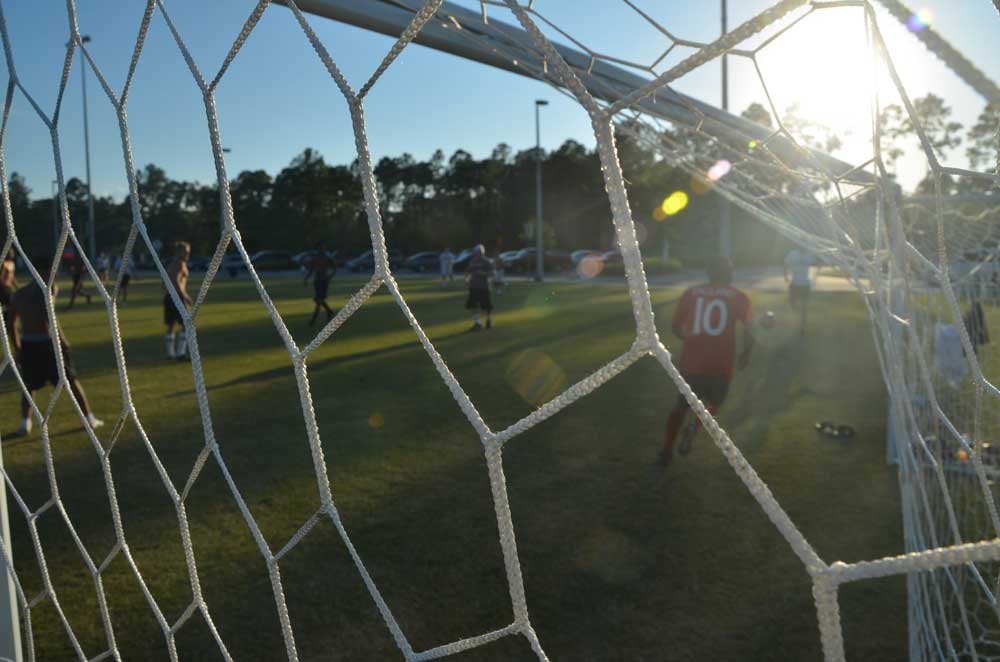
High school athletes in Florida, just like their college counterparts, will be able to make money off the field through endorsements and other kinds of deals.
While saying additional protections are needed, the State Board of Education on Wednesday ratified a plan approved last month by the Florida High School Athletic Association that will allow high school athletes to get paid through name, image and likeness, or “NIL,” deals.
Board of Education Chairman Ben Gibson said the athletic association, which regulates high-school sports, must prioritize the protection of student-athletes, most of whom will be minors.
“This could be a great opportunity for some student-athletes, but we want to make sure they do it in a manner that they are protected and not exploited,” Gibson said.
The plan, which overhauls a section of the association’s bylaws that govern “amateurism,” will allow student-athletes to brand themselves for commercial endorsements, promotional activities and through social media.
High schools won’t be able to use promises of NIL deals to recruit players.
State Education Commissioner Manny Diaz said the bylaw changes were “not taken lightly” and warned against companies trying to use NIL deals that “circumvent the process and take advantage of our students.”
Board member Esther Byrd suggested the association require students to register when participating in NIL deals.
“I am very concerned about the bad actors,” Byrd said. “Obviously, they have already popped up. We know it is coming. We know they don’t care about our rules, and they are going to do what they want to do.”
Craig Damon, executive director of the association, said bylaws continue to be updated, noting that issues involving what are known as “collectives” were amended this week in reaction to a national group found recruiting and collecting money in multiple states including Florida.
Damon said that for most students, an NIL deal would be equal to having an afterschool job, while at the college level “you see student-athletes getting compensated for their name being on a roster.”
“We don’t foresee kids making hundreds of thousands or millions of dollars off this,” Damon said. “However, there will be that 1 percent of elite athletes that possibly may have that opportunity. But for the majority of our student-athletes, it will be something local with a local business.”
The association plans to post online videos to share information with parents and students about how NIL deals operate, Damon said.
NIL deals have helped transform college athletics across the country in recent years. Florida lawmakers approved NIL regulations in 2021 that were revised last year to allow universities to become more involved in the process.
As part of the high-school bylaws, student-athletes and their families will be encouraged to seek legal counsel and tax advice when considering NIL activities.
High school athletes would still be prohibited from being paid for on-field activities, hiring agents and receiving awards unapproved by the athletic association.
Also, student-athletes who transfer after starting a sport will be prohibited in most cases from securing NIL agreements during that season.
Students won’t be able to use their team uniforms, logos, mascots or any other identifiers of their schools as part of NIL deals. Also, deals would have to end when students graduate from high school and would have to hold harmless schools, school districts and the athletic association from liability.
Students will be prohibited from endorsing services during school-sponsored events or athletic activities and can’t enter into deals tied to adult entertainment, gambling, firearms, tobacco, marijuana or NIL collectives.
Violations will result in warnings for first offenses. Second offenses would result in student-athletes being ineligible to represent schools for one year. Third offenses could lead to student-athletes being barred from competing throughout their time in high school.
–Jim Turner, News Service of Florida





























Joe D says
I still think there is MUCH chance of abuse or exploitation of the student or family. I DO like the board member’s suggestion that the students participating in these promotional programs, be REQUIRED to REGISTER if they participate in these programs. So if there are repetitive promoters exploiting students, the list could bring them to light faster.
I still think that (for high school students at least)…these endorsements are much more than “after school” jobs, and although they might not be making 100’s of thousands of dollars. Offering students even 10’s of thousands of dollars during high school would be HIGHLY seductive ( and might DEFINITELY take precedence over their efforts to maintain their GRADES).
My fear is that promotion companies would use a player until they no longer have any financial benefit to the company, then the “money tree” is cut off.. they don’t even CARE if the student athlete FLUNKS OUT!
This program could end up being a great opportunity for student athlete, but, it also has the opportunity to exploit the student.
Bob J says
So. If my taxes pay for these students’ education and athletic activities, when do I get a rebate for the taxes I paid. I no longer have children in school. I don’t have an issue contributing to education, but this needs to be addressed on a higher level.
How will this affect the income for low-income parents that get state and local assistance.
The violation 3 step should be 1 step. No warning. You screw up, you’re done.
Nephew Of Uncle Sam says
They can cash in all they want, doesn’t mean Colleges and Universities are going to accept them with a Florida education.